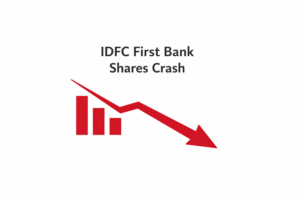Best Liquor Stocks in India to Watch in 2025

Few industries in India are as paradoxical as liquor, regulated to the bone, yet unstoppable in demand. Despite moral debates and endless state restrictions, glasses keep clinking. Because when people celebrate, they reach out for a brand they trust. Weddings, cricket nights, Friday fatigue, everything ends with a toast.
What makes it fascinating is its duality, part traditional, part aspirational. The old-school whisky lover now drinks single malt, the beer crowd is discovering craft brews, and the health-conscious millennial is sipping wine.
Market Size and Growth Potential
The liquor industry in India is large and growing fast. Analysts peg the market value around ₹4-5 lakh crore and climbing steadily. Whisky dominates, rum and vodka fill their lanes, and wine and beer are quietly multiplying.
Rising disposable income is fueling the shift. The middle class has money, confidence, and a taste for branded bottles. Urbanization is helping too. Tier-2 cities are now home to fancy bars, not just tea stalls. Even rural markets are seeing growth in sales of packaged liquor.
Key Segments – Beer, Spirits, and Wine
India’s liquor scene splits into three categories.
Beer is the comfort drink, social, easygoing, and perfect for younger crowds. The craft-beer wave has added fresh energy, especially in metro cities.
Spirits remain the money-spinner. Whisky, vodka, gin, rum: Each has its loyal followers. Indian whisky brands like Royal Challenge, Blenders Pride, and Imperial Blue are household names.
Wine, once a luxury item, is finding new fans among professionals and health-minded consumers. Urban millennials are driving wine tastings and vineyard tourism.
Regulatory Environment and Taxation
If there’s a villain in the liquor story, it’s regulation. Each Indian state has its own liquor laws, licenses, quotas, sale hours, taxes, and the works.
Excise duties eat into margins. Advertising restrictions make marketing tricky. And because alcohol isn’t under GST, companies pay layered taxes on bottles, packaging, and transport.
Yet, the sector survives, even thrives, because demand never fades. Consumers absorb price hikes without flinching. Every time excise duties rise, so do revenues.
Why Invest in Liquor Stocks in India?
You can tell a lot about a country from how it drinks. India’s alcohol story screams growth, aspiration, branding, and pride.
For investors, that means opportunity. Liquor stocks blend consumption stability with high-margin potential.
Rising Consumer Demand
India’s working population is young, urban, and increasingly social. Bars are ever busy. Restaurants serve cocktails with every cuisine. And online delivery apps make it easier to order drinks than ever before.
Premiumization and Brand Loyalty
Ten years ago, whisky was whisky. Today, it’s single malt, small batch, aged 12 years, or flavored gin. The premium segment is exploding because consumers want identity with their drink.
That shift changes everything. Premium brands earn fatter margins, face less price sensitivity, and lock customers in. Once a buyer upgrades to a favorite brand, they rarely downgrade.
That’s why companies like United Spirits and Radico Khaitan spend heavily on branding.
Export Potential and Global Opportunities
Indian liquor brands aren’t local secrets anymore. They’re pouring into global markets, from London bars to Dubai duty-free shelves.
Radico Khaitan’s single malts are winning awards. Indian gins are popping up in cocktail menus abroad. The “Made in India” label is getting classier by the day.
Top Liquor Stocks in India Based on Market Cap
The stock market’s liquor shelf has clear favorites, the giants who run nationwide and the challengers who hustle locally.
- United Spirits Ltd – India’s largest spirits company, a subsidiary of global giant Diageo. From McDowell’s No. 1 to Signature, its portfolio covers everything from budget to ultra-premium.
- United Breweries Ltd – A part of the Heineken Company. Think Kingfisher. Despite ups and downs, it remains the undisputed beer king. Urban consumers drive volumes, and the premium beer segment is its playground.
- Radico Khaitan Ltd – The quiet outperformer. Magic Moments vodka, 8 PM Whisky, Rampur Single Malt, all strong performers. Its shift toward premium brands is paying off big.
- Allied Blenders & Distillers Ltd – Makers of Officer’s Choice brand. Once a mass brand, now pushing hard into premium spaces. Its nationwide reach gives it a scale most new entrants envy.
- Tilaknagar Industries Ltd – A comeback story. Mansion House Brandy dominates the southern market. Smart restructuring and regional focus make it a stock to track.
Other Emerging Players
Beyond the big five, smaller distilleries are quietly brewing success.
- Globus Spirits is expanding capacity fast and tapping ethanol opportunities.
- Associated Alcohols & Breweries has built steady profits with strong state presence.
- Som Distilleries & Breweries plays both beer and IMFL, a rare dual portfolio.
- Sula Vineyards owns India’s wine narrative and benefits from tourism and premium tie-ups.
- G.M. Breweries rules the affordable-liquor segment with impressive cash discipline.
Performance Analysis of Leading Liquor Stocks
Historical Returns and Stock Trends
Look back a few years, and liquor stocks tell a steady story. Even during COVID, when bars shut down, home consumption kept revenue alive. Post-pandemic, stocks roared back as sales normalized.
Radico Khaitan and United Spirits delivered strong double-digit returns.
Financial Strength and Profitability
Strong liquor companies are like cash machines. They collect payments up front and pay excise duty later. That keeps working capital healthy.
United Spirits trimmed debt and focused on high-margin products. United Breweries leveraged distribution. Radico Khaitan combined premium expansion with exports.
Their secret weapon? Brand power.
Valuation Metrics (P/E Ratio, EPS, Market Cap)
Valuations in this sector look pricey, but that’s the cost of reliability.
United Spirits trades around a P/E in the 60s. United Breweries crosses 100 because of its near-monopoly in premium beer. Radico Khaitan balances growth and value with a mid-range multiple.
Risks and Challenges in Liquor Stock Investments
Of course, every party has its hangover. Liquor stocks carry specific risks that demand attention.
Government Regulations and Excise Duties
Policy changes can flip margins overnight. A single excise hike in a major state can shrink quarterly profits. Some states restrict advertising; others tighten retail licensing. Even dry-state debates can spook investors. That’s why seasoned players diversify, multiple states, multiple brands, multiple channels.
Competition from Global and Local Players
The competition keeps heating up. Global names bring marketing dollars; local craft labels bring novelty. Consumers have more choices than ever. To stay ahead, companies must keep innovating, new blends, limited editions, and sustainable packaging.
Changing Consumer Preferences
A shift is brewing, literally. Younger drinkers lean toward lighter options, cocktails, and flavored spirits. Health trends push “low-calorie” and “low-ABV” beverages. Firms that adapt fast, adding sparkling mixes, low-sugar rum, or ready-to-drink cans, will keep winning.
Expert Tips for Investing in Liquor Stocks
Long-Term vs. Short-Term Approach
Forget trading these names like tech stocks. Liquor thrives on patience. Regulations, excise cycles, or one bad monsoon may shake prices, but consumption always returns. Long-term holders usually win because these businesses compound slowly and steadily.
Diversification Strategies
Balance your basket. Own a couple of giants for stability and a few mid-caps for growth. Spread across beer, spirits, and wine, each reacts differently to economic shifts.
Remember, liquor is state-regulated. A company shining in Karnataka might face bottlenecks in Maharashtra.
Key Indicators to Track
Watch three things like a hawk: volume growth, pricing power, and excise policy.
If sales volumes rise steadily and companies raise prices without losing buyers, that’s your signal of brand strength.
Conclusion – Are Liquor Stocks a Good Bet in 2025?
The answer is a confident yes, but with discipline. Liquor stocks in India are backed by habit, emotion, and economics. People drink through recessions and celebrate through recoveries. That consistency makes these stocks special.
The tailwinds are strong, with premiumization, exports, urban growth, and rising incomes. Regulations will keep throwing curveballs, but history shows the industry always adapts.
FAQs
Q1: Which liquor stock is the best to buy in India right now?
Large-cap names like United Spirits and Radico Khaitan remain favorites due to brand scale and premium portfolios. Investors chasing consistency lean toward them.
Q2: Are liquor stocks in India safe for long-term investment?
They’re relatively steady but not risk-free. Policy shocks and taxation changes can cause dips. Over long stretches, though, brand-driven players usually recover quickly.
Q3: How does government policy affect liquor companies in India?
Excise duties, licensing, and distribution laws differ by state. Any sudden revision impacts margins. That’s why companies spread operations across regions to cushion policy hits.
Q4: What is the future growth outlook for the Indian liquor industry?
Strong. Premiumization, urban expansion, and export growth promise a solid decade ahead. The next wave of growth will come from high-end spirits and low-alcohol alternatives.
Q5: Can foreign investors invest in Indian liquor stocks?
Yes. Many liquor companies are publicly listed and open to foreign institutional investors under standard exchange rules. Global funds already hold stakes in major Indian players.
Disclaimer
The stocks mentioned in this article are not recommendations. Please conduct your own research and due diligence before investing. Investment in securities market are subject to market risks, read all the related documents carefully before investing. Please read the Risk Disclosure documents carefully before investing in Equity Shares, Derivatives, Mutual fund, and/or other instruments traded on the Stock Exchanges. As investments are subject to market risks and price fluctuation risk, there is no assurance or guarantee that the investment objectives shall be achieved. Lemonn do not guarantee any assured returns on any investments. Past performance of securities/instruments is not indicative of their future performance.
To read the RA disclaimer
Research Analyst - Gaurav Garg







